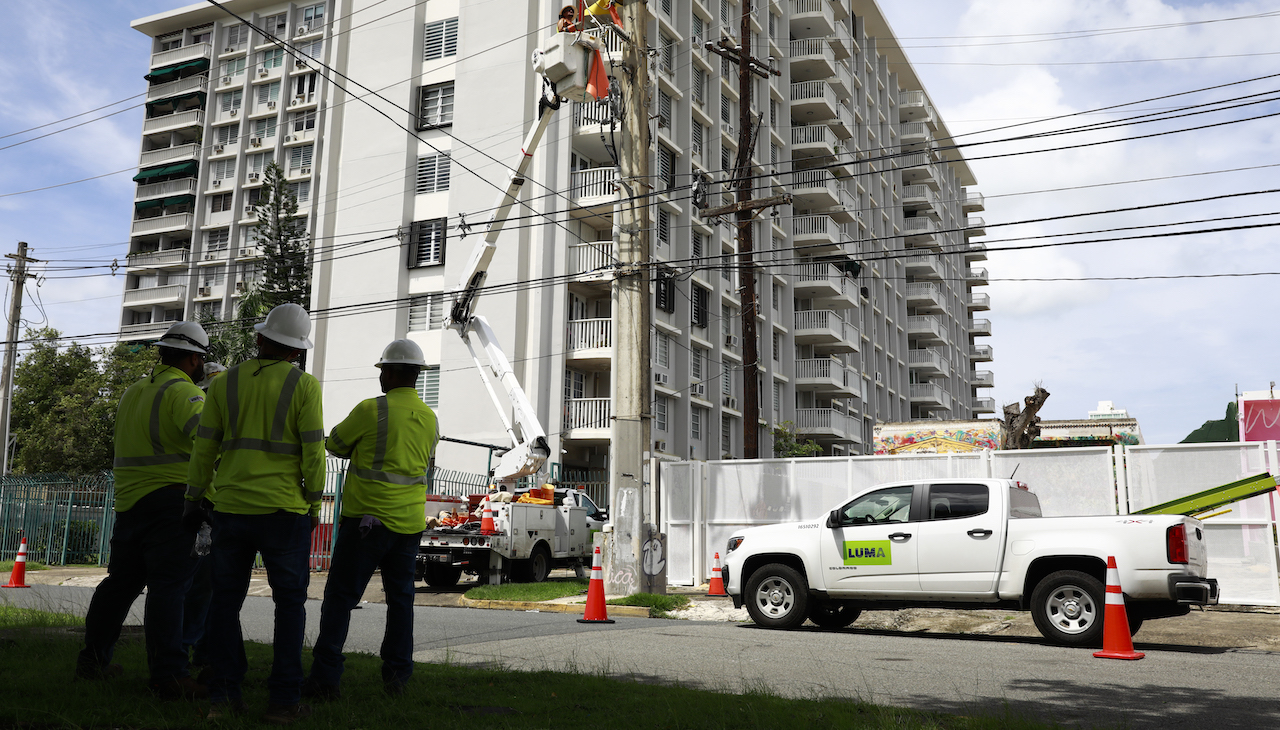
Puerto Rico power utility awarded a temporary extension despite furor
LUMA, the U.S.-Canada consortium overseeing Puerto Rico’s waning power grid, rallied sufficient votes to secure a temporary extension amid debt restructuring.
Following two years of a failed strategy to restore Puerto Rico’s waning power grid, LUMA may yet see better days as two rounds of voting cemented its continued operations while the government deliberates a billion-dollar debt.
A 4-1 vote carried out this week by the Puerto Rico Electric Power Authority (AEE), the governing board for its now-dissolved power utility handed to LUMA, enabled an indefinite extension, poised initially for the next 15 years.
Although AEE, a public utility run by the government, was replaced by LUMA in 2021, its governing board still has unilateral negotiating advantages with the private power utility and the Federal Oversight and Management Board (FOMB), the federal body tasked with supervising Puerto Rico finances.
Additionally, Puerto Rico’s national newspaper, El Nuevo Día, reported the extension also includes a $122 million raise from the originally negotiated $115 million to adjust for inflation, they reported.
AEE currently oversees the generation of energy in Puerto Rico, while LUMA controls its transmission and distribution throughout the Commonwealth.
AEE is also the sole public organism of the Puerto Rican government that is due for a plan to restructure its debt after months of negotiations between the FOMB and debt bondholders fell through in a federal bankruptcy court.
But it’s tricky. The government wants to avert bankruptcy, as well as the installation of an external body imposed on AEE, prompting the Government to agree to an extension.
The debt, called PDA, amounts to $9 billion of the total $70 billion owed to bondholders who engaged in years-long, staked investments against Puerto Rico’s debt, looking for a payday, now working itself out through a court helmed by New York Judge Laura Taylor Swain, who is soon to determine how much cash investors will see.
Finalized plans for PDA were due Thursday, but Judge Swain agreed to a request for an elongated period of mediation, requested by an intermediary, which coincided with LUMA’s contractual extension and pay raise.
This, in part, is because LUMA does not want to inherit AEE’s debt.
FOMB, in agreeing with intermediaries, also held that LUMA should continue to oversee the power grid restoration through and voted to uphold the contract.
RELATED CONTENT
Any motion in Puerto Rico’s finances requires a sign-off from FOMB.
Puerto Rico Governor Pedro Pierluisi defended the government’s position this week to extend LUMA’s contract and is prepared to take on litigation in court if necessary while also insisting the extension “should not be considered as a new contractual obligation.”
But LUMA’s extension may not bode positively for Puerto Ricans, who will ultimately carry the burden of its shortcomings.
Throughout 2021, Puerto Ricans were mired by an onslaught of brutal, unexpected blackouts, rendering essential services — like hospitals and clinics — inoperable.
The blackout triggered a series of demonstrations over the course of the last two years, though unsuccessfully, calling for a cancellation of the contract, but LUMA has maintained the blackouts are inherited.
The most recent protest in August resulted in violent encounters between the Puerto Rican police and peaceful protesters.
Most recently, hours before Hurricane Fiona’s landfall on the eve of Hurricane Maria’s five–year anniversary, it was reported that Puerto Rico was 100% without electricity, forcing citizens to relive the tragic events of 2017.
And despite jarring, unreliable service with no one to hold accountable, given the fact that LUMA is a private entity, Puerto Ricans pay a high price, literally, at 34c per kilowatt, the most expensive electric bill in the U.S. next to Hawaii.
In August, Pierluisi asked the private entity to revisit their operations, citing it was “obvious” to him that improvements were necessary, but he changed his tune this month amid contractual negotiations, and a contract reversal is seemingly, increasingly unlikely,










LEAVE A COMMENT: